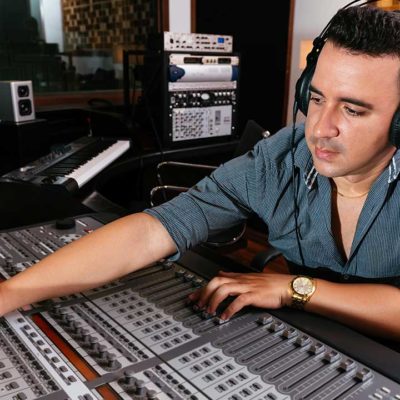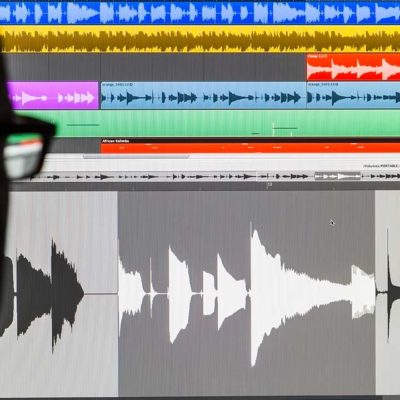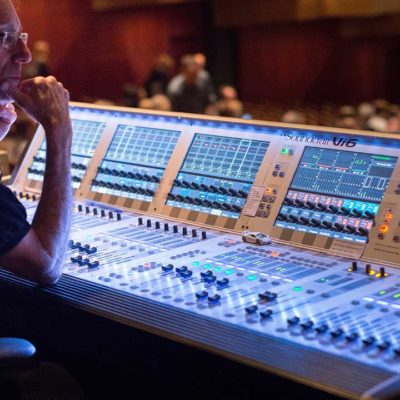
7 Fundamental Tasks
What does a music producer do? Music producers have a multitude of responsibilities, here are a few things they have to do on a daily basis:
1. Manage the Business
Producing music is much more than just recording a song and uploading it to YouTube. Music producers represent the business aspect of the music industry.
Whether it’s budgeting, providing instruments, hiring audio engineers, or building relationships with people in the music industry, producers have to make sure that artists have what they need to actually make the music.

2. Studio Sessions
These days, just about anyone can record music in their garage with cup-holder insulation and an iPhone. But any musician trying to make it big will eventually need access to a studio, and music producers need to be able to provide it for their talent when it’s needed.
A studio will often offer the use of equipment that few people will be able to find elsewhere, and this is where most music producers spend most of their time. Producers need to prepare and manage the audio equipment inside the studio and coordinate with artists.

3. Coordinate with Local Businesses and Events
Producers aren’t always confined to the studio. The only way music artists can be recognized is for their music to be heard, and the best way to gain exposure is in front of a crowd. Music producers have to coordinate with event planners so they can provide gigs for their talent to perform.
These gigs can range anywhere from bar performances on Saturday nights to large music festivals, and producers need to be aware of when and where these events take place so they can schedule performances for their talent.
4. Audio Engineering
Making music requires a lot of time, effort, and training, and music producers have the final say in how a song gets made.
This aspect of the job requires a decent amount of technical training in music engineering, sound engineering, and recording arts. Producers have to know how to operate audio equipment to achieve a desired sound.
They also have to know how to use music software to arrange the music digitally.
5. Social Media
Music producers spend a lot of time trying to promote their music, and one of the best ways to get their music heard is through the use of social media platforms.
Facebook, Twitter, and Instagram basically offer artists free marketing for their music. Producers can also share music through music services such as Soundcloud and Spotify to gain recognition.
Although some of these services don’t necessarily generate revenue for the producers themselves, social media lets producers to establish a fanbase, which is one of the keys to success in the music industry.

6. Read the News
What does a music producer do that sets them apart?
Music producers are entrepreneurs at heart.
Although much of their work is creative, producers look for opportunities in places others normally wouldn’t, and producers need to know what’s going on in the world around them in order to capitalize on these opportunities.
Staying informed through publications such as RecordingMag.com also gives producers a source of inspiration, which is vital to producing good music.
7. Listen to Music
No surprise here, but producers often spend an inordinate amount of time listening to music that isn’t their own. Because their careers generally revolve around experimenting with different sounds, producers will try to expose themselves to as much music as possible, and across a wide array of genres.
Producers also need to listen to music to find good artists to work with, especially when it comes to newcomers in the industry.










Leave a Reply